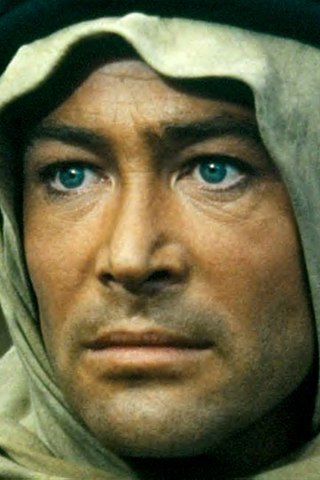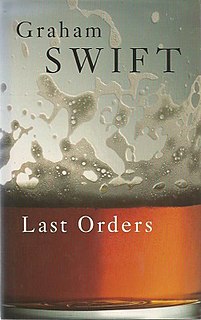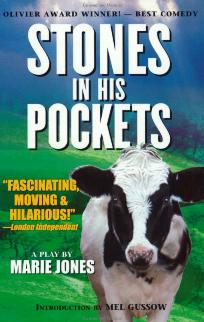The back-story
Six young Irish working men immigrate to London in the early 1970s. Like so many of their generation, they spend their lives in manual labour jobs – digging ditches or construction work. They intended to stay only a little while, make some money and return home as successful men, but that day never seemed to arrive. Now, twenty-something years later, still in London, five of them gather in the side room of a pub in an informal wake for one of them who has died. All are in their late-40s or early-50s. All but one (who had split off from the group years earlier and established a successful construction company of his own) are broken from lives of hard work and harder drinking.
The entire play takes place in one afternoon and evening at that pub, as the characters drink to their fallen friend – the only one to make it home, albeit in a coffin. Secrets are revealed and lies are uncovered.
The play was adapted into a film, Kings , directed by Tom Collins, and premiered at the Taormina Film Festival (Italy) June 2006. It was selected as Ireland's official entry for the 2008 Academy Awards for best foreign-language film.

A pub is a kind of drinking establishment which is licensed to serve alcoholic drinks for consumption on the premises. The term public house first appeared in the United Kingdom in late 17th century, and was used to differentiate private houses from those which were, quite literally, open to the public as "alehouses", "taverns" and "inns". By Georgian times, the term had become common parlance, although taverns, as a distinct establishment, had largely ceased to exist by the beginning of the 19th century. Today, there is no strict definition, but CAMRA states a pub has four characteristics:
- is open to the public without membership or residency
- serves draught beer or cider without requiring food be consumed
- has at least one indoor area not laid out for meals
- allows drinks to be bought at a bar

Peter Seamus O'Toole was a British stage and film actor. He attended the Royal Academy of Dramatic Art and began working in the theatre, gaining recognition as a Shakespearean actor at the Bristol Old Vic and with the English Stage Company. In 1959 he made his West End debut in The Long and the Short and the Tall, and played the title role in Hamlet in the National Theatre's first production in 1963. Excelling on the London stage, O'Toole was known for his "hellraiser" lifestyle off it.

Kilburn is an area of north west London, England, which spans the boundary of three London Boroughs: Camden to the east, City of Westminster, Brent to the west. There is also an area in the City of Westminster, known as West Kilburn and sometimes treated as a distinct locality. Kilburn High Road railway station lies 3.5 miles (5.6 km) north-west of Charing Cross.
Pub rock is a rock music genre that was developed in the early to mid-1970s in the United Kingdom. A back-to-basics movement which incorporated roots rock, pub rock was a reaction against the expensively-recorded and produced progressive rock and flashy glam rock scenes of the time. Although short-lived, pub rock was live rock played in small traditional venues like pubs and clubs. Since major labels showed no interest in pub rock groups, pub rockers sought out independent record labels such as Stiff Records. Indie labels used relatively inexpensive recording processes, so they had a much lower break-even point for a record than a major label.
The Iceman Cometh is a play written by American playwright Eugene O'Neill in 1939. First published in 1946, the play premiered on Broadway at the Martin Beck Theatre on October 9, 1946, directed by Eddie Dowling, where it ran for 136 performances before closing on March 15, 1947. It has subsequently been adapted for the screen multiple times. The work tells the story of a number of alcoholic dead-enders who live together in a flop house above a saloon and what happens to them when the most outwardly "successful" of them embraces sobriety and reveals that he has been on the run after murdering his "beloved" wife.

A Whistle in the Dark is a play by Tom Murphy that premiered on September 11, 1961 at the Joan Littlewood's Theatre Royal, Stratford East, London, having been rejected by the Abbey Theatre, Dublin. It then went on to be a West End hit. Murphy was twenty-five years old at the time.

Ciarán Hinds is an Irish actor. Born in Belfast, Northern Ireland, Hinds is known for his various roles on the screen and stage, ranging from heroic to villainous characters. He has starred in feature films such as The Cook, the Thief, His Wife & Her Lover (1989), Persuasion (1995), Oscar and Lucinda (1997), Road to Perdition (2002), The Sum of All Fears (2002), Munich (2005), Amazing Grace (2007), There Will Be Blood (2007), Miss Pettigrew Lives for a Day (2008), Harry Potter and the Deathly Hallows – Part 2 (2011), Tinker Tailor Soldier Spy (2011), Silence (2016), First Man (2018), and Belfast (2021), the latter for which he was nominated for the Academy Award for Best Supporting Actor.
The Plough and the Stars is a four-act play by the Irish writer Seán O'Casey that was first performed on 8 February 1926 at the Abbey Theatre. It is set in Dublin and addresses the 1916 Easter Rising. The play's title references the Starry Plough flag which was used by the Irish Citizen Army.

Last Orders is a 1996 Booker Prize-winning novel by British writer Graham Swift. In 2001 it was adapted for the film Last Orders by Australian writer and director Fred Schepisi.

Ecstasy is a 1979 play by British playwright Mike Leigh with a six-character cast. It covers the life of four blue-collar friends living in a ratty area of London near Kilburn High Road and the drunken frustration in their lives, particularly that of the lead character Jean.
Conversations on a Homecoming is a 1985 play by Irish playwright Tom Murphy. Premiered by the Druid Theatre Company, Galway, Ireland in a production directed by Garry Hynes. As one of the great Irish plays set in a pub, its influence can be seen in more recent plays such as The Weir by Conor McPherson.

Sparrows Can't Sing is a 1963 British kitchen sink comedy film. Based on a 1960 play, Sparrers Can't Sing, it was directed by Joan Littlewood and was from a story by Stephen Lewis. The producer was Donald Taylor and the original music by James Stevens, incidental music was composed by Stanley Black. The play, also by Stephen Lewis, was first performed at Joan Littlewood's Theatre Workshop in the Theatre Royal Stratford East.
Marie Mullen is an Irish actress. She is known for co-founding the Druid Theatre Company, located in Galway, Ireland. She is also known for her performance in the 1998 production of The Beauty Queen of Leenane, for which she received a Tony Award for Best Actress in a Play.

Stones in His Pockets is a two-hander written in 1996 by Marie Jones for the DubbleJoint Theatre Company in Dublin, Ireland.
Jimmy Murphy is an Irish playwright living in Dublin. He is a former writer in residence at NUI Maynooth (2000–01), a member of the Abbey Theatre’s Honorary Advisory Council, a recipient of three Bursaries in literature from the Arts Council/An Chomhairle Ealaíona and was elected a member of Aosdána in 2004.
Enda Walsh is an Irish playwright.

Kings is a 2007 Irish film written & directed by Tom Collins and based on Jimmy Murphy's play The Kings of the Kilburn High Road. The film is bilingual, having both Irish and English dialogue. It premiered at the Taormina Film Festival (Italy) in June 2007, and was selected as Ireland's official entry for the 2008 Academy Awards in the best foreign-language film category. The film tells the story of a group of Irish friends who, after emigrating to England 30 years previously, meet for the funeral of a friend. In 2008, the Irish postal service, An Post, issued a series of stamps honouring the Irish film industry. Colm Meaney, as Joe Mullan, was featured on the 55 cent stamp.

The Likely Lads is a 1976 British comedy film directed by Michael Tuchner, starring James Bolam and Rodney Bewes. It is a spin-off from Whatever Happened to the Likely Lads?, although it shares its title with the earlier 1960s British television series The Likely Lads, of which Whatever was the sequel.

An actor or actress is a person who portrays a character in a performance. The actor performs "in the flesh" in the traditional medium of the theatre or in modern media such as film, radio, and television. The analogous Greek term is ὑποκριτής (hupokritḗs), literally "one who answers". The actor's interpretation of a role—the art of acting—pertains to the role played, whether based on a real person or fictional character. This can also be considered an "actor's role," which was called this due to scrolls being used in the theaters. Interpretation occurs even when the actor is "playing themselves", as in some forms of experimental performance art.
Pill Hill is a three-act play by American dramatist Sam Kelley. Set in a neighborhood on the South Side of Chicago known informally as Pill Hill, the play examines the failures, successes, and relationships of six African American steel mill workers as they transition from blue-collar jobs to white-collar professions between 1973 and 1983. The play is regarded as an allegory of economic progress related to the American Dream.











